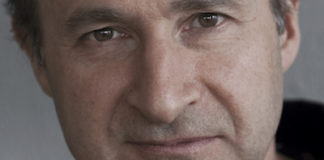Tag: Psychiatry
Screening Instruments Do Not Reflect Individual Experiences of Depression
Researchers detect discrepancies between the language used to describe lived experiences of mental health and the language used in modern screening tools.
Poor and Foster Care Children More Likely to be Diagnosed and...
Study details Medicaid-insured birth cohort’s exposure to psychiatric medications and mental health services.
Transcranial Magnetic Stimulation No Better Than Placebo for Treatment-Resistant Depression
A new study in JAMA Psychiatry found that transcranial magnetic stimulation was no better than placebo for treatment-resistant depression.
Call for Client Inclusion in Recovery-Focused Psychiatric Diagnosis
A new review, published in The Lancet Psychiatry, examines the perspectives of clinicians and service-users on psychiatric diagnosis.
Preventing Long-term Benzodiazepine Use
Researchers Identify risk factors for long-term benzodiazepine use to prevent harmful effects.
Researchers Present Structural Competency Training Model for Psychiatrists
Researchers argue that a structural competency and social determinants of health approach must be made central to psychiatry training.
Using Participatory Action in Bioethics Research
Participatory action approaches in bioethics research used to decrease coercion and seclusion in psychiatric treatment.
Peter Breggin, MD: The Conscience of Psychiatry
On this episode of the MIA Radio podcast, we present part one of an interview with Dr. Peter Breggin about his career, his views on psychiatry and recent developments with the Michelle Carter trial in which he testified as an expert medical witness.
Jim van Os: Rethinking Biological Psychiatry
Psychiatrist Jim van Os is Chairman of the Department of Psychiatry and Psychology at Maastricht University Medical Centre, Maastricht, The Netherlands. He challenges current diagnostic conceptions of schizophrenia and other mental disorders, and offers a vision for creating a new paradigm of mental health care.
Pratima Singh: Exploring Alternatives to Biological Psychiatry
Pratima Singh, who got her medical degree in India, works at the Maudsley NHS Hospital in London as an adult psychiatrist. She has a deep interest in alternatives to biological approaches to psychiatry and the use of psychotropic medications.
Peter Gøtzsche: The Pharmaceutical Manufacturers Dominance of Mental Healthcare
Professor Peter Gøtzsche is Director of the Nordic Cochrane Centre in Denmark and discusses his background in research, his views on antidepressant prescribing and how pharmaceutical manufacturers have influenced mental healthcare.
Your Psychiatrist Might be Wrong
From Pakistan Today: Psychiatry may lack scientific objectivity in comparison with other fields of medicine.
"The mind sciences – psychology or psychiatry – have always been...
Researcher Acknowledges His Mistakes in Understanding Schizophrenia
Sir Robin Murray, a professor at the Institute of Psychiatry, Psychology, and Neuroscience in London, states that he ignored social factors that contribute to ‘schizophrenia’ for too long. He also reports that he neglected the negative effects antipsychotic medication has on the brain.
Evolution or Revolution? Why Western Psychiatry Won’t Change by Incremental Steps
...but how realistic is it to expect that the biological skew of Western psychiatry can be sustainably changed one small step at a time?
The Failed Quest for Biomarkers in Psychiatry
A recent commentary by Ganesan Venkatasubramanian and Matcheri Keshavan notes that efforts to identify biomarkers in people diagnosed with psychiatric disorders have been overwhelmingly...
The Case Against Antipsychotics
This review of the scientific literature, stretching across six decades, makes the case that antipsychotics, over the long-term, do more harm than good. The drugs lower recovery rates and worsen functional outcomes over longer periods of time.
“The Overdiagnosis of ADHD”
The general theme, that various "mental illnesses" are being "overdiagnosed" is gaining popularity in recent years among some psychiatrists, presumably in an effort to distance themselves from the trend of psychiatric-drugs-on-demand-for-every-conceivable-human-problem that has become an escalating and undeniable feature of American psychiatric practice. But the implicit assumptions – that there is a correct level of such labeling, and that the label has some valid ontological significance – are emphatically false.
Does Your Child Have ‘ADHD’? It Might Depend On Your Doctor
A study published in the journal Pediatrics reveals large differences from one pediatrician to the next when it comes to diagnosing and prescribing drugs for ‘ADHD.’ The researchers found that the percentage of children being diagnosed with ‘ADHD’ varied from as high as 16% of patients at some offices to as little as 1% of patients at others. The data also revealed significant but lower variability in the pediatric diagnosis of anxiety and depression.
Psychiatry: Worth Keeping If “Slowed Down”?
The faults of modern psychiatry are numerous and profound, and many readers here know firsthand about its destructive force. But are these faults so vast that there is nothing worth saving?
An Important Documentary: Letters from Generation Rx
Letters from Generation Rx is the second documentary from international award-winning filmmaker Kevin P. Miller about the challenges of treating mental health symptoms with psychotropic drugs. We are grateful that Miller interviewed both of us for Letters — and his film highlights the struggle we’ve faced in bringing our research on nutrition and mental illness to the world. But make no mistake, the “stars” of Miller’s documentary are the everyday people who bravely share their personal sagas for all to see. Their stories will keep you on the edge of your seats.
Unhelpful Utterances: 6 Comments We Should No Longer Hear From Mental...
Professionals are paid to share their wisdom with those who are, typically, less informed. But, when dealing with mental health professionals in the psychiatric arena, it is wise to retain a degree of skepticism about the words spoken by the doctors and nurses commissioned to help reduce human misery and suffering.
Amphetamines Have Long-Term Effects on Adolescent Brain, Study Finds
A new study published in the journal Neuroscience finds that rats given regular doses of amphetamines during adolescence have brain and behavioral changes in adulthood....
Organized Denial: Psychiatry’s Quiet Desperation
Peter Gøtzsche’s new book, Deadly Psychiatry and Organized Denial brings up an important and complex issue. How do psychiatrists get up in the morning and damage people all day long while pretending to help them? The book is elegantly referenced – and I encourage everyone who practices thoughtful psychiatry to read it, because you need to be much better educated to practice high-quality mental health than you do to act as a dispensing machine. Gøtzsche is absolutely right; on all levels psychiatrists are in denial about the damage that they are doing to patients.
Dr. Pies and Psychiatry’s ‘Solid Center’
Ronald Pies, MD, is one of American's most eminent and prestigious psychiatrists. He is the Editor-in-Chief Emeritus of Psychiatric Times, and he is a Professor of Psychiatry at both Syracuse and Tufts. I disagree with many of Dr. Pies' contentions, and I have expressed these disagreements in detail in various posts. But there is one area where I have to acknowledge Dr. Pies' efforts: he never gives up in his defense of his beloved psychiatry, even in the face of the most damaging counter-evidence. For instance, on more than one occasion, he has asserted, with apparent sincerity and conviction, that psychiatry never promoted the chemical imbalance theory of depression!
Emphasis on Nutrition Needed to Reform Mental Health Treatments
Even thought current mental health treatments are “suboptimal,” there is a lack of attention paid to the preventative effects of diet and nutrition. Recent studies suggests that nutritional changes can influence the risk for mental health issues and that nutritional supplements, called nutraceuticals, can be prescribed for existing conditions.

























